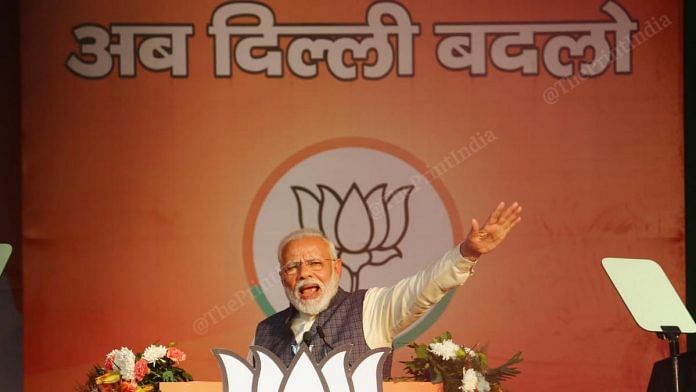
What India and the world are witnessing right now are two fascinating yet obnoxious sides of our democracy. On one side, close to a million farmers are agitating in nail-biting cold against the three farm laws that were hurriedly passed by the Narendra Modi government flouting all democratic procedures and norms. On the other side, Prime Minister Modi and his ministers are trying to demean, defame and demonise agitating farmers by all possible means. The latest jibe came directly from the Prime Minister mocking certain protesters as “andolan jivis” — loosely translated as those thriving on agitation.
None of the responsible elected representatives in the history of India has ridiculed agitators from the floor of Parliament. In fact, peaceful agitation is the bedrock of Indian democracy and a tool used by freedom fighters during the struggle for independence from British rule.
The kisan andolan
This farmers’ agitation is turning out to be unique in many ways. Since November last year, farmers, mostly old, have marched towards Delhi. Roads have been blocked, national highways dug up, water canons deployed and tear gas shells burst to prevent farmers from reaching Delhi. They have been branded as ‘Khalistani’, ‘anti-national’, and ‘secessionist’. At several protesting sites, water supply and access to basic hygiene facilities have been cut off due to blockades by State authorities.
The agitation has gone on for over 70 days and has caused the death of more than 130 farmers. Yet, the Union government remains adamant. More vitriolic steps have been undertaken — borders barricaded using concrete walls, iron nails on roads and concertina wires installed by police authorities. No previous peaceful agitation in India has ever been met with such brutality and repression.
Democracy backsliding
Clearly, this has dented our standing as a liberal democracy. India is rapidly descending into the category of a “flawed democracy” according to the recently published 2020 Democracy Index by The Economist Intelligence Unit (EIU). Interestingly, India’s slide in the Democracy Index coincides with the political rise of Prime Minister Narendra Modi and the Bharatiya Janata Party.
In 2014, India ranked 27 with a score of 7.92. Gradually, it fell to the 53rd position last year with a score of 6.61. The sustained stifling of dissent, the introduction of a religious test for citizenship, the emergence of a pliant media, a passive judiciary and the Centre’s discernible apathy towards parliamentary deliberations have raised the spectre of serious democratic backsliding in India.
From intolerant to insecure nationalism
This inhumane brutality with the farmers has attracted the attention of global leaders and celebrities. Canadian Prime Minister Justin Trudeau and some British MPs raised their concern about the prolonged farmers’ agitation. But the Ministry of External Affairs (MEA) was quick to dismiss these concerns by terming the protest as an internal matter. However, recent tweets by Rihanna, a US-based pop star, and Greta Thunberg, a teenage climate activist, rattled the Indian government. The MEA’s response was unprecedented. It is clear evidence of disquiet at the highest echelons of power.
In a democracy, agitation is aimed at collective self-determination. Freedom of speech and expression form the basic tenet of any democratic agitation. Each citizen is entitled to a vote and voice in democratic governance. Stifling the collective voice of the people will only further destroy democracy in India.
Prithviraj Chavan is the former chief minister of Maharashtra. Views are personal.
Subscribe to our channels on YouTube & Telegram
Why news media is in crisis & How you can fix it
India needs free, fair, non-hyphenated and questioning journalism even more as it faces multiple crises.
But the news media is in a crisis of its own. There have been brutal layoffs and pay-cuts. The best of journalism is shrinking, yielding to crude prime-time spectacle.
ThePrint has the finest young reporters, columnists and editors working for it. Sustaining journalism of this quality needs smart and thinking people like you to pay for it. Whether you live in India or overseas, you can do it here.